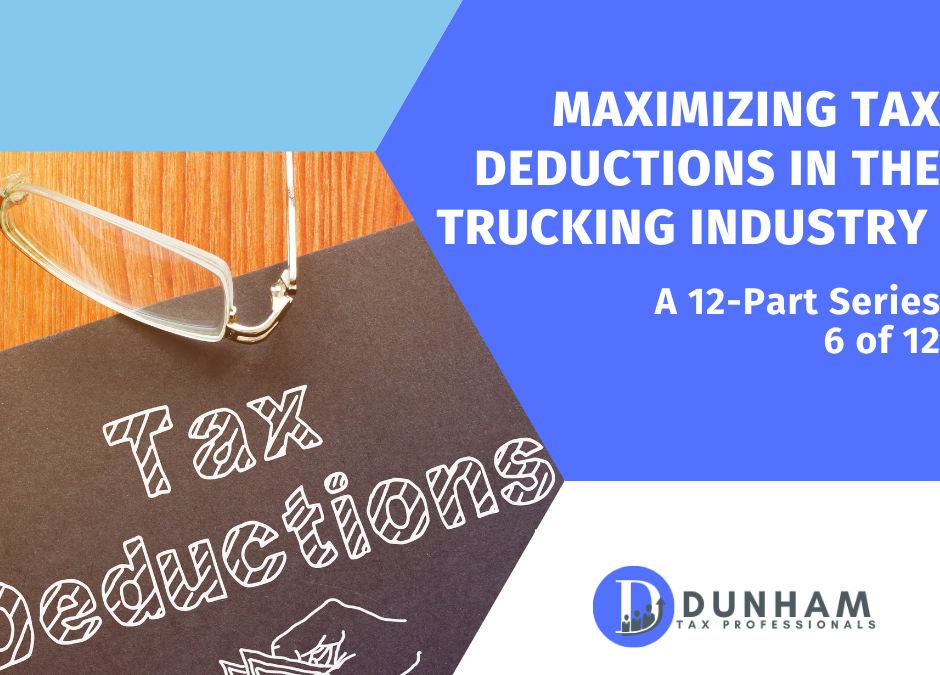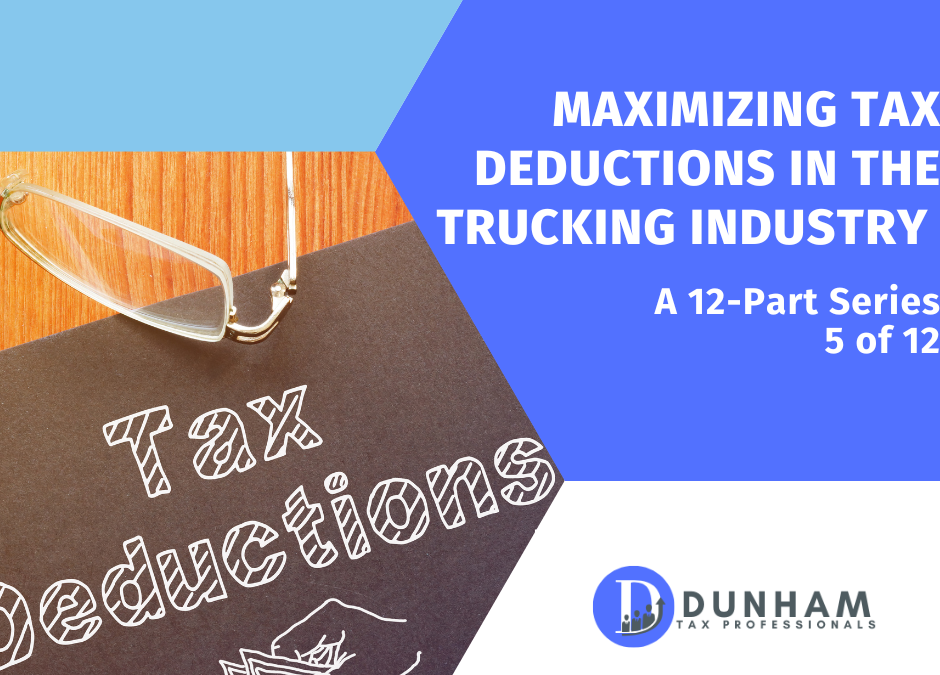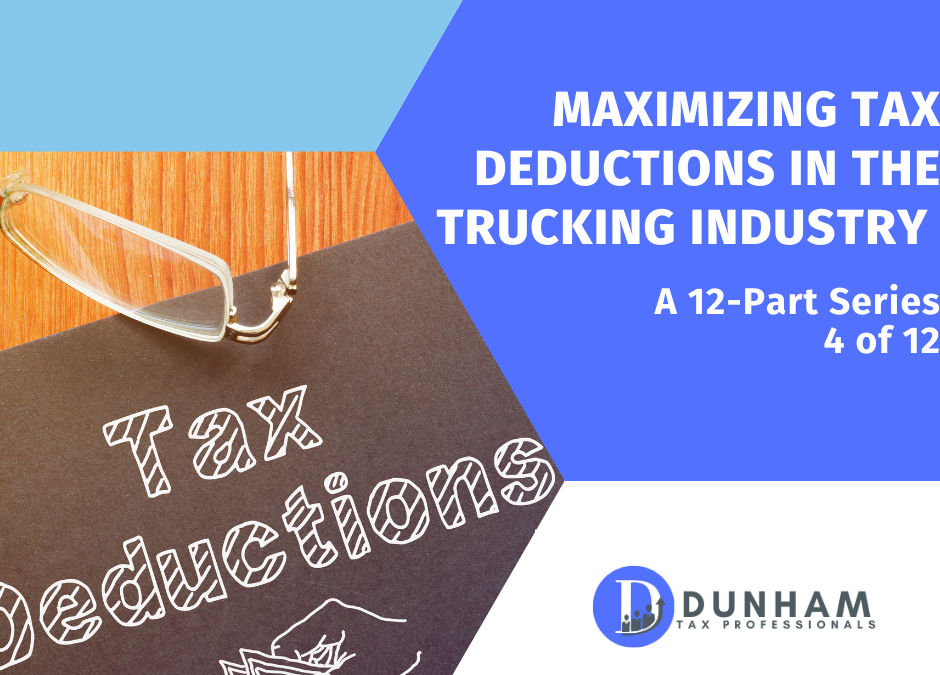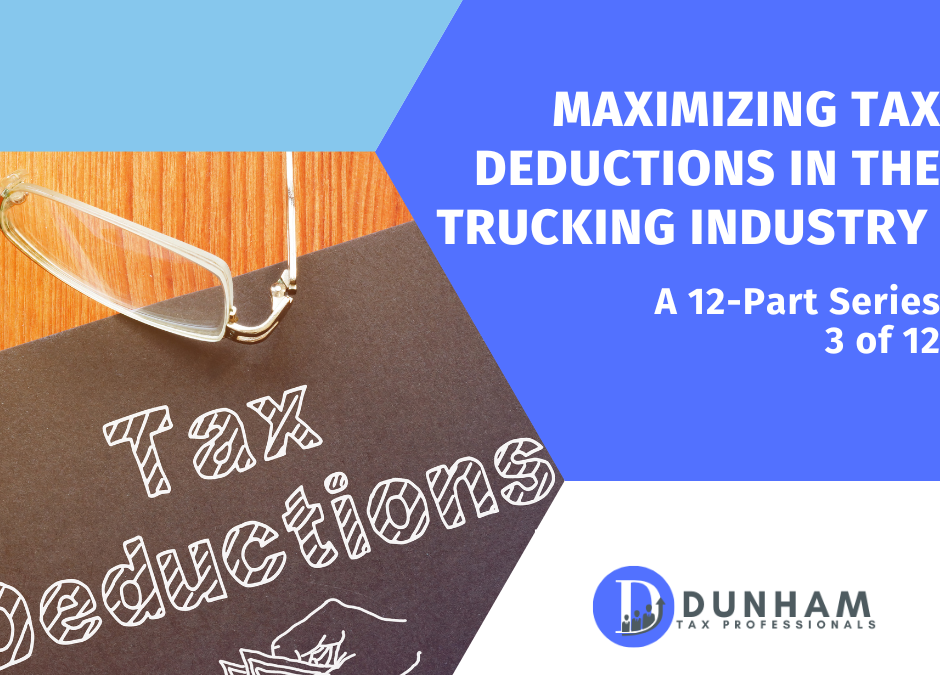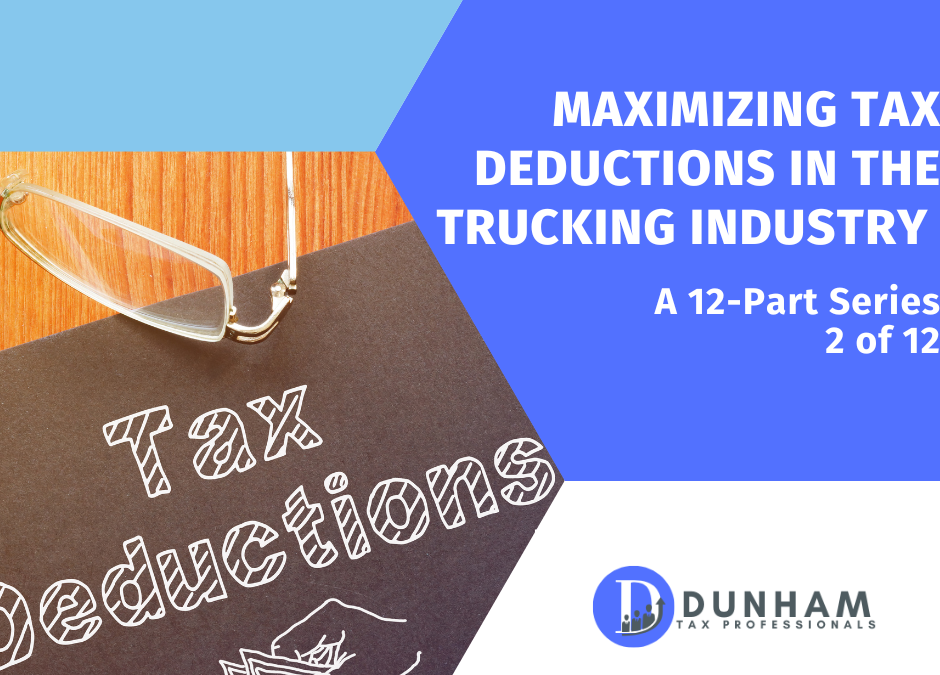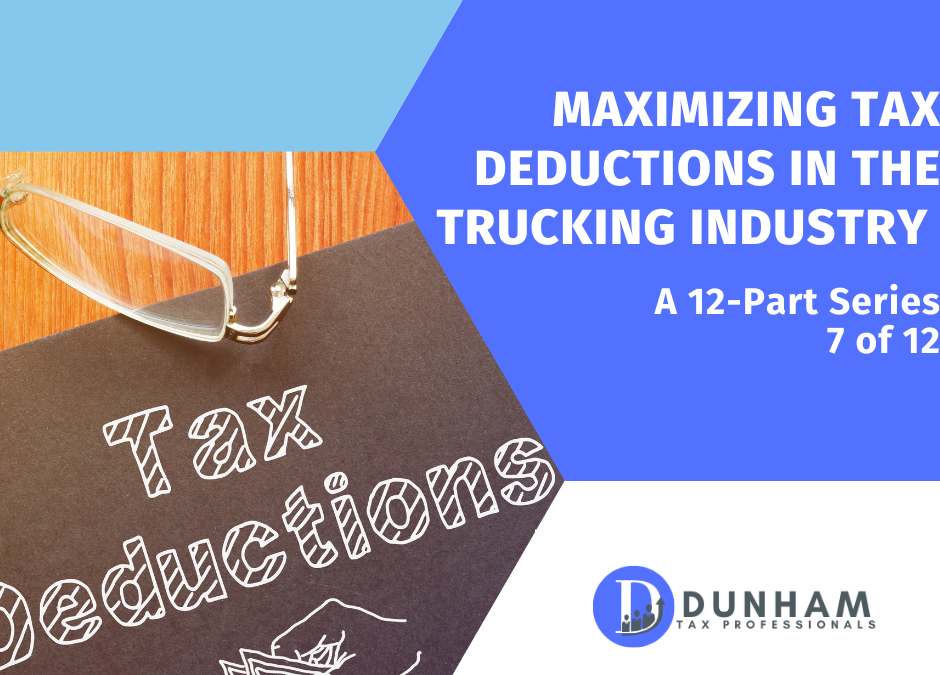
Deducting Insurance Premiums
Insurance plays a vital role in the trucking industry, providing protection against unforeseen risks and liabilities. As a trucker, you may be eligible to deduct insurance premiums as a business expense, which can help reduce your taxable income and optimize your tax savings. In this post, we will explore the intricacies of deducting insurance premiums for truckers, including an overview of relevant insurance policies, the process of deducting premiums, and tips for identifying deductible policies and maintaining proper documentation.
Overview of Insurance Policies
The trucking industry requires various insurance policies to manage risk and protect assets.
Here are some insurance policies commonly utilized by truckers:
- Commercial Auto Liability Insurance: This policy provides coverage for bodily injury and property damage caused by trucking accidents. It is a requirement for most trucking operations and can be deductible as a business expense.
- Cargo Insurance: Cargo insurance covers the value of goods being transported by the truck. It protects against theft, damage, or loss of cargo and can be deductible as a business expense.
- Occupational Accident Insurance: This policy provides coverage for medical expenses, disability benefits, and accidental death and dismemberment for trucking professionals. It may be deductible as a business expense, depending on the circumstances.
- Worker’s Compensation Insurance: If you have employees, worker’s compensation insurance is essential to cover medical expenses and lost wages in case of work-related injuries or illnesses. Premiums for this policy are generally deductible.
Deducting Insurance Premiums as a Business Expense:
Insurance premiums can be deducted as a business expense, reducing your taxable income.
Consider the following points:
- Ordinary and Necessary: Insurance premiums must be ordinary and necessary expenses incurred for the operation of your trucking business. They should be directly related to your business activities and provide protection against specific risks and liabilities.
- Self-Employed Health Insurance Deduction: If you are self-employed and pay for health insurance, you may be eligible for a separate deduction for health insurance premiums. Consult with a tax professional to understand the specific requirements and limitations.
Tips for Identifying Deductible Insurance Policies and Maintaining Documentation:
To ensure you can properly deduct insurance premiums, follow these tips:
- Consult a Tax Professional: Work with a tax professional who specializes in the trucking industry to identify the insurance policies that are deductible based on your specific circumstances. They can guide you on the eligibility criteria and help optimize your deductions.
- Maintain Detailed Records: Keep thorough records of all insurance policies held for your trucking business. Retain copies of insurance contracts, premium payment receipts, and policy statements as supporting documentation for your deductions.
- Separate Personal and Business Policies: Clearly distinguish between personal insurance policies and those directly related to your trucking business. Only premiums for policies used for business purposes are deductible.
- Document Business Use: If you have insurance policies that serve both personal and business purposes, document the percentage of business use. Deduct only the portion of premiums attributable to the business use.
Deducting insurance premiums as a business expense is a valuable strategy for truckers to reduce taxable income and optimize tax savings. By understanding the various insurance policies relevant to the trucking industry, the process of deducting premiums, and maintaining proper documentation, you can ensure compliance with tax regulations and maximize your deductions. Consult with a tax professional to identify deductible insurance policies and obtain personalized guidance tailored to your specific circumstances. Protect your business and finances while taking advantage of the tax benefits provided by insurance deductions. Stay tuned for our upcoming posts, where we will explore more tax-related topics and strategies relevant to the trucking industry.

